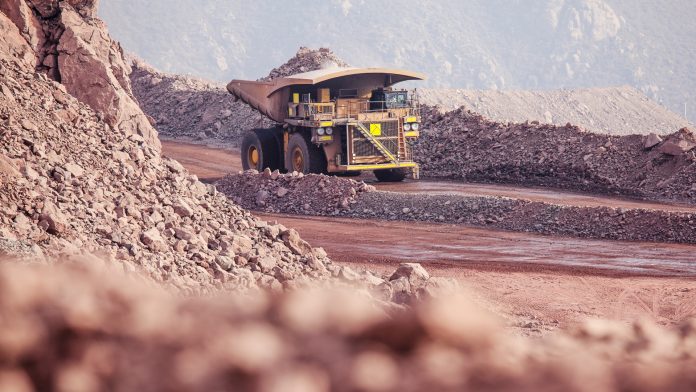Copper Concentrate and Its Role in Sustainable Energy Solutions
Copper concentrate is a critical intermediate product derived from copper ore, containing high levels of copper along with other valuable elements. Its exceptional conductivity, durability, and recyclability make copper indispensable in sustainable energy solutions. From renewable energy technologies to electric vehicles (EVs) and efficient power systems, copper concentrate plays a pivotal role in driving the global shift toward greener energy. This blog explores the significance of copper concentrate in sustainable energy solutions and its contributions to a cleaner, more efficient future.
What is Copper Concentrate?
Copper concentrate is produced during the beneficiation process of copper ore. It contains 20-30% copper, along with traces of other elements such as gold, silver, and molybdenum. This concentrated form is refined further to extract pure copper, which is used across various industries, particularly in sustainable energy applications.
The Role of Copper in Sustainable Energy Solutions
1. Solar Energy Systems
- Copper in Solar Panels: Copper wiring and components are essential for efficient energy transfer in photovoltaic (PV) cells.
- Inverters and Storage: Copper facilitates smooth energy conversion and storage, enhancing solar system reliability.
2. Wind Energy
- Turbine Components: Wind turbines use large amounts of copper in generators, transformers, and power cables.
- Energy Transmission: Copper ensures efficient power transmission from wind farms to the grid.
3. Electric Vehicles (EVs)
- EV Motors and Batteries: Copper is a key material in EV motors, wiring, and battery connections.
- Charging Infrastructure: Copper is used extensively in EV charging stations for its high conductivity and durability.
4. Energy Storage Systems
- Battery Technologies: Copper plays a role in advanced energy storage systems, enabling better charge retention and transfer.
- Grid Storage: Copper-based technologies improve the efficiency of energy storage for renewable power grids.
5. Smart Grids
- Modern Power Networks: Copper ensures reliable communication and energy distribution in smart grids.
- Sustainability Benefits: Smart grids with copper components optimize energy usage and reduce waste.
Benefits of Copper Concentrate in Sustainable Energy
High Electrical and Thermal Conductivity
- Copper's unmatched conductivity minimizes energy loss, making it ideal for renewable energy systems.
Durability and Longevity
- Copper’s resistance to corrosion ensures a longer lifespan for components, reducing replacement needs.
Recyclability
- Copper can be recycled without loss of quality, supporting circular economy principles.
Energy Efficiency
- Copper's role in efficient power transfer and storage reduces energy wastage, enhancing overall system performance.
Scalability
- Copper-based technologies can be scaled to meet the growing demand for renewable energy solutions globally.
Challenges in Using Copper Concentrate for Sustainable Energy
Resource Scarcity
- As demand for copper increases, the availability of high-grade copper ore may become a challenge.
Environmental Impact of Mining
- Mining and processing copper ore can have significant ecological footprints, necessitating sustainable practices.
Cost Fluctuations
- Market dynamics and supply chain disruptions can impact the cost of copper concentrate.
Sustainable Practices in Copper Concentrate Production
Eco-Friendly Mining
- Companies are adopting renewable energy and advanced water recycling systems in mining operations.
Recycling Initiatives
- Recycling scrap copper reduces the need for raw materials and lowers environmental impact.
Advanced Processing Technologies
- Innovations in hydrometallurgy and other methods are reducing the energy and waste associated with copper refining.
Future Trends in Copper Concentrate for Sustainable Energy
Increased Renewable Energy Adoption
- The global shift to solar, wind, and hydropower will drive demand for copper in energy systems.
Expansion of Electric Mobility
- As EV adoption grows, copper’s role in vehicles and charging infrastructure will expand significantly.
Smart City Development
- Copper will be a cornerstone of smart city infrastructure, powering energy-efficient grids and communication systems.
Innovative Materials
- Research into copper alloys and composites will further improve the performance of energy solutions.
Conclusion
Copper concentrate is an indispensable resource in the transition to sustainable energy solutions. Its exceptional conductivity, durability, and recyclability make it vital for renewable energy systems, electric vehicles, energy storage, and modern power grids. As industries embrace greener technologies, the role of copper in driving energy efficiency and reducing environmental impact becomes even more critical.
By adopting sustainable mining and processing practices, industries can ensure a steady supply of copper concentrate while minimizing ecological harm. As the demand for clean energy grows, copper concentrate will remain at the forefront of powering a sustainable and energy-efficient future.
